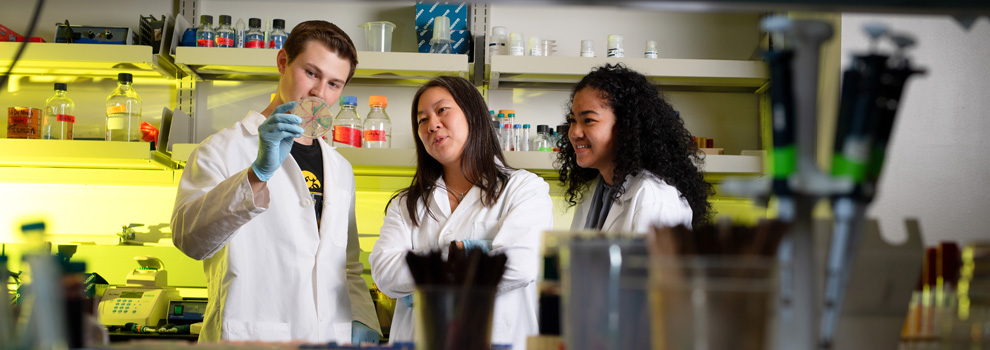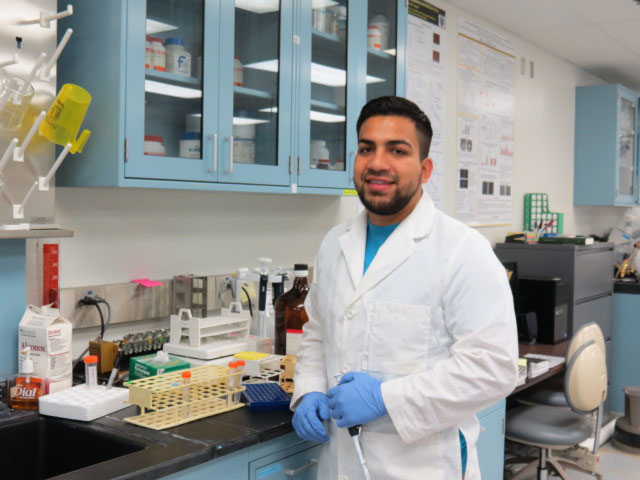
"CCTS offers a unique curricular experience that UI undergraduates won't find elsewhere. Motivated students will learn about the field of clinical and translational science and gain necessary tools for success." - Lori Adams, PhD, University of Iowa Department of Biology
 Certificate in clinical and translational science at Iowa
Certificate in clinical and translational science at Iowa
CCTS provides educational enrichment and an increased awareness of expanding opportunities in translational science, a discipline focused on moving biomedical discovery into application in the healthcare arena.
Participation in the innovative CCTS Certificate will provide motivated undergraduates an opportunity to connect their research activities to translational science and begin their training in this important discipline.
What is translational science?
Translational science requires team-based interdisciplinary approaches to advance research-generated discoveries into clinical trials and facilitate adoption of best practices in a clinical and community setting.
Translational science investigators understand principles involved in foundational research and how such studies relate to epidemiology, behavioral medicine and patient-oriented research.
 Related fields
Related fields
- Medicine
- Public health
- Nursing
- Dentistry
- Biostatistics
- Behavioral medicine
- Clinical pharmacology
- Epidemiology
- Other allied health professions
The ideal CCTS student
- Interested in the concept of translational science—how does research actually apply to the patient and community?
- Interested in graduate schools across many disciplines, or careers where a Bachelor degree provides translational science career opportunities
- Engaged in mentored research, or identifying mentored research opportunities
- Strong leadership and team skills
- Motivated
Watch this video to learn more about the NIH's description of translational science and how the University of Iowa's CCTS can help our undergraduates grow in this field.
Match Day Q&A with CCTS Alum Vijay Kamalumpundi

Help the Institute for Clinical and Translational Science at the University of Iowa continue making new strides in medical research by citing the NIH CTSA program grant UM1TR004403.